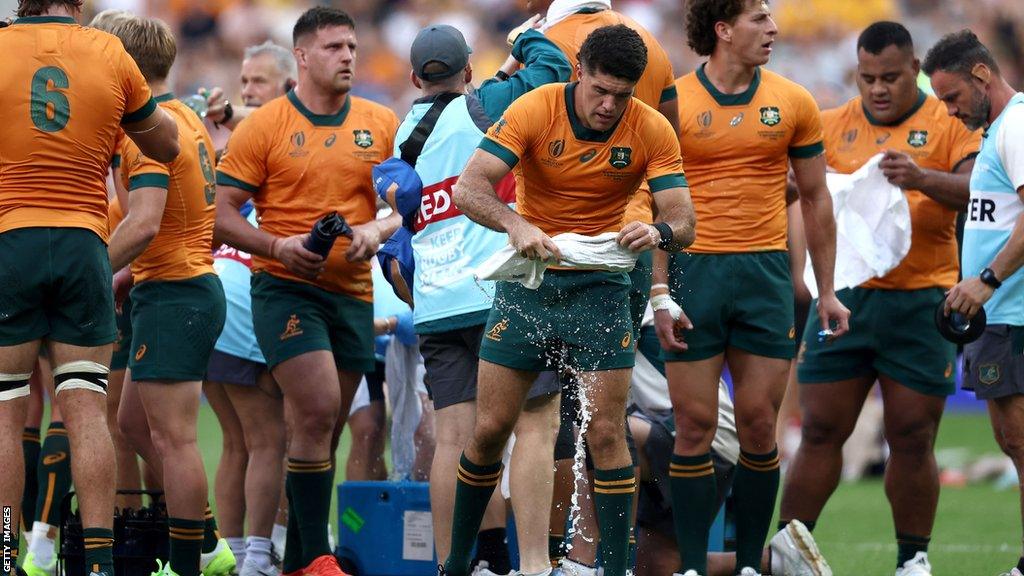World Rugby to introduce new heat guidelines including extended half-times
- Published

Extended and more frequent water break are among the potential new guidelines to combat high temperatures
World Rugby is looking to introduce extended half-times and more water breaks during matches played in hot and humid conditions.
Players travelling to play in warmer environments could also be asked to complete a heat education module.
World Rugby's chief medical officer Eanna Falvey said the measures will be used as "ways for us to avoid postponing or having to cancel games".
The governing body will publish new heat guidelines in the summer.
Other measures include encouraging players to keep on damp shirts, rather than putting a fresh dry shirt that might increase body temperature.
The governing body will also recommend an acclimatisation period of up to two weeks when players change region and environment.
Falvey recognises that will prove "difficult" for teams in the United Rugby Championship and Champions Cup competitions, who now travel between the European winter and South African summer, and sometimes do so at altitude.
"We propose to build this into the new guidelines," Falvey told 大象传媒 Sport. "Measures would include longer breaks and intervals, but also delaying kick-off for a cooler time."
Falvey said the new guidelines will also form a "vital part of planning" in the venues and timings of matches played at the 2027 men's Rugby World Cup in Australia.
However, speaking at the World Rugby Player Welfare Conference, Warren McDonald, chief medical officer at Rugby Australia, was keen to stress that the World Cup window of September, October and November is considered a "much safer time of year" in the country temperature-wise.
McDonald added that new equipment to better measure pitchside temperatures and air quality will be used to allow teams, organisers, and match doctors to determine what extra safety measures are required.
In 2020, rugby league player Keith Titmuss collapsed and later died aged 20 after a training session with Australian club Manly Sea Eagles. he died of exertional heat stroke.
During the 2020 bushfires that badly affected the country, Rugby Australia took the decision to move Super Rugby side the Brumbies during the pre-season for several weeks because of poor air quality in the Australian capital.